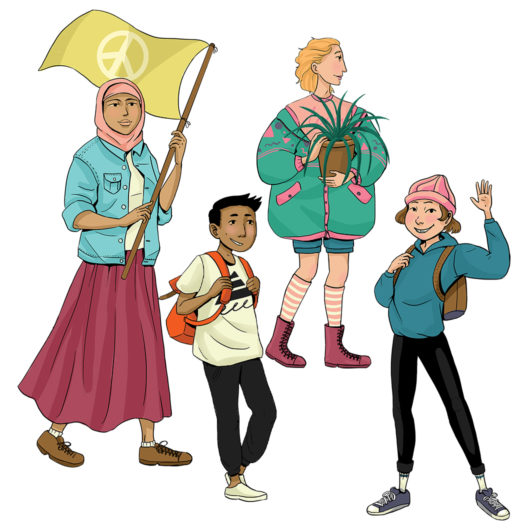Workshops

At the Peace School, students participate in activity days, which deal with peace and development education themes such as conflict prevention, non-violence, human rights, global responsibility and global development issues.
The working methods are participatory drama, role play, process drama and other participatory methods, which are intended to awaken each student’s own critical thinking and to increase their empathy and dialogue skills as well as their respect for diversity.
Participatory drama methods help students to step into someone else’s shoes for a while, to experience inequality and to realize how important it is to respect other people and their rights. The aim is to promote positive values and assists students to take responsibility for their actions and to see themselves as global citizens who can contribute to a more peaceful, just and sustainable world.
In activity days Peace School mainly uses process drama method. Process drama is a dynamic teaching methodology in which a teacher and their students work together to create an imaginary drama world. They work within that world to explore a particular problem, situation or themes. This is not done for a separate audience but for the benefit of the participants themselves. The characters, situations, events and issues that are created and explored within the drama world reflect and illuminate the real world.
In a process drama, students play a range of roles and engage in a variety of reflective out-of-role activities, requiring them to think beyond their own points of view and consider the topic from multiple perspectives. Students also acquire factual knowledge related to the topic of the drama. They emerge with an expanded self-awareness, and a greater sense of the challenges and the possibilities facing the society and world.
